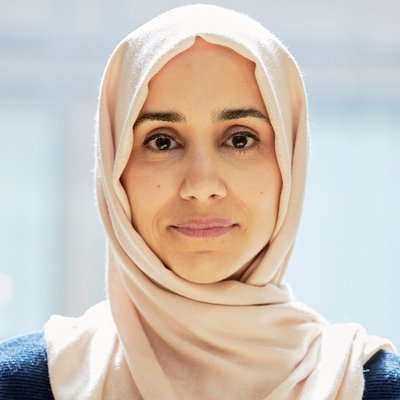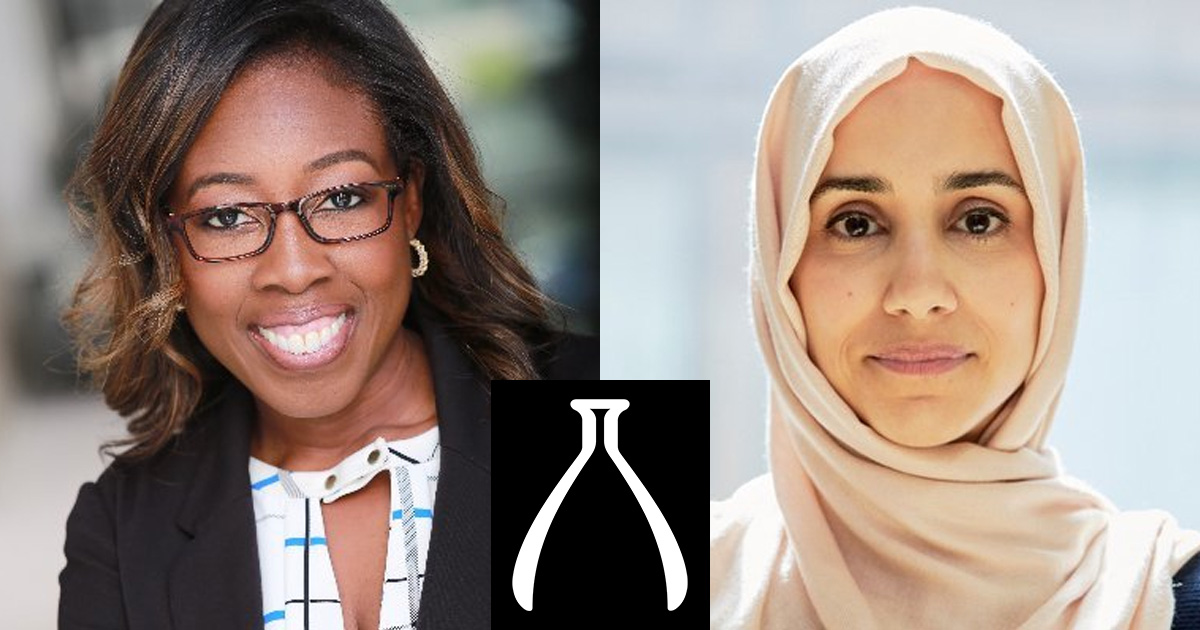Dr. Loretta Erhunmwunsee and Dr. Mariam Jamal-Hanjani receive this year’s awards
NEW YORK, NY (October 19, 2021) – The Lung Cancer Research Foundation (LCRF) today announced the awardees of the 2021 LCRF Research Grant on Disparities in Lung Cancer, awarding $300,000 in research grants for projects focused on disparities in lung cancer. These grants are sponsored, in part, by Bristol Myers Squibb.
Lung cancer is the number one cause of cancer death worldwide, accounting for an estimated 143,000 deaths annually in the United States alone, and research shows that living with and being treated for lung cancer is not experienced equally. The burden of this disease disproportionately affects low socioeconomic status populations, people living in rural areas with limited healthcare resources, and different racial/ethnic groups. These factors create barriers in understanding of the disease and its risk factors, as well as the importance of regular screenings, comprehensive biomarker testing and participation in clinical trials.
“Research funding on disparities in lung cancer is critical to understanding the reasons behind these inequities and designing solutions to address them,” said Katerina Politi, Ph.D., Associate Professor of Pathology and Internal Medicine at Yale School of Medicine and chair of LCRF’s Scientific Advisory Board. “Certain groups of individuals are more susceptible due, for example, to environmental factors or have limited access to quality care. We are confident that the projects we are funding will lead to advancements in the field that will help to overcome some of these gaps.”
This funding mechanism will provide $150,000 over a period of two years ($75,000 per year), and this year’s grantees include Loretta Erhunmwunsee, MD and Mariam Jamal-Hanjani, MD, PhD.

Dr. Erhunmwunsee practices at City of Hope as Assistant Professor, Division of Thoracic Surgery, Department of Surgery; Assistant Professor, Division of Health Equities, Department of Population Sciences. Her research focuses on understanding the impact of social and environmental determinants on NSCLC diagnosis and survival in communities of color.
Her proposal aims to evaluate the social determinants that impact LCS adherence in minority smokers and to develop an AI predictive tool to determine which LDCT user will be at high-risk for non-adherence. Completion of the proposal will allow for development of specific intervention programs that ensure vulnerable individuals are screened, as a lack of screening completion drives disparities in NSCLC rates and death.
“I’m devoted to my patients and their families and to assuring that they get the best care. Because communities of color have the highest risk and mortality from NSCLC, we must assure that they do not also miss LCS opportunities. I believe that understanding and intervening on what leads the most vulnerable to poor health will improve the health of the whole population,” says Dr. Erhunmwunsee. “I’m grateful that LCRF is supporting my research in identifying people at risk and developing the solutions to help reduce that risk. I am excited to get this project started and grateful for this grant. I believe it will make a profound impact on the outcomes of communities of color.”

Dr. Jamal-Hanjani is a clinician scientist and Clinical Associate Professor at the University College London Cancer Institute. Her proposal aims to determine if air pollution is driving lung cancer development in never-smokers through alterations of the lung microenvironment that subsequently promote expansion of EGFR mutant cells. By combining population data, air pollution, and lung cancer incidence, she will determine if areas with more particulate matter (PM2.5) drive EGFR mutant lung cancer in never-smokers.
“There is so much we do not know about environmental factors and their affect on how the human body responds,” says Dr. Jamal-Hanjani. “Understanding the causes behind lung cancer in never-smokers and being able to identify risks for people who do not smoke but live and work in geographies with poor environmental conditions, will help to improve early screening and detection for those affected populations. I am thrilled that LCRF is supporting my research and honored to receive this grant.”
These grants are the first of many that will be awarded in the coming months, following a rigorous RFP review process conducted by LCRF’s Scientific Advisory Board.
